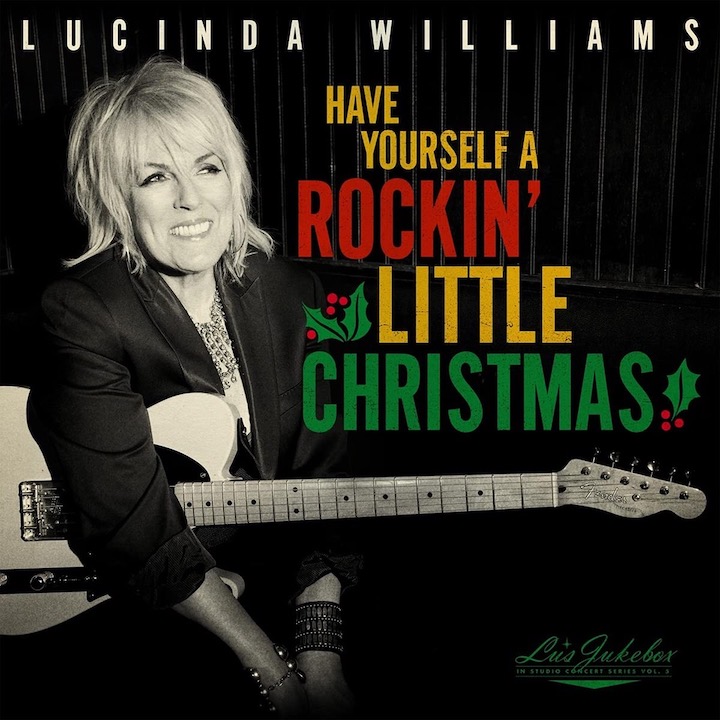More Great Covers from Lucinda Williams
In an earlier column, I wrote about the first four volumes of Lucinda Williams’s Lu’s Jukebox, a live-in-the-studio series featuring terrific covers of some of her favorite music, including Southern soul, sixties country, and songs by Tom Petty and Bob Dylan. Now the final two CDs in the series are out, and like their predecessors, they demonstrate that Williams is just as adept at interpreting others’ material as she is at writing her own.
Called Have Yourself a Rockin’ Little Christmas with Lucinda, Volume 5 makes room for “Have Yourself a Merry Little Christmas” and Irving Berlin’s “I’ve Got My Love to Keep Me Warm” but mostly eschews cheery, well-known holiday standards in favor of bluesy numbers as well as a few rockers and country tunes. Among the selections on the 12-track program are Buck Owens’s “Blue Christmas Lights,” Charles Brown’s “Merry Christmas, Baby” and “Please Come Home for Christmas,” the Ramones’ “Merry Christmas (I Don’t Want to Fight Tonight),” and Merle Haggard’s “If We Make It Through December.” She also tweaks the lyrics of Willie Dixon’s “Little Red Rooster” to turn it into a Christmas song.
On the 16-track Volume 6, called You Are Cordially Invited…A Tribute to the Rolling Stones, Williams sticks to that band’s best-known material, including rockers like “Street Fighting Man,” “Sympathy for the Devil,” “Paint It Black,” “Satisfaction,” and “Get Off of My Cloud” and ballads like “Moonlight Mile” and “Play with Fire.” Her renditions mostly echo the style and mood of the originals, but she nevertheless manages to inject something fresh into virtually every track.
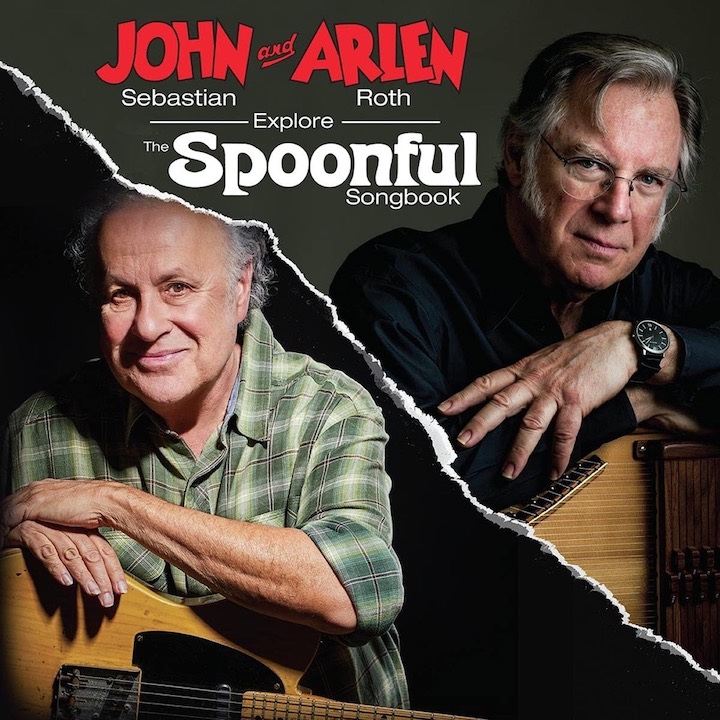
John Sebastian Revisits His Spoonful Classics
As I noted in a column two weeks ago that featured my interview with Lovin’ Spoonful leader and co-founder John Sebastian, he recently issued his first album since 2007. Called John Sebastian and Arlen Roth Explore the Spoonful Songbook, it finds him and his guitarist friend delivering many of the group’s classic hits. Assisting the pair are bassist Ira Coleman, drummer Eric Parker, Sebastian’s son Benson, who provides percussion, and Arlen’s daughter Lexi, who sings beautifully on one track. Maria Muldaur and her ex-husband Geoff Muldaur also make contributions as do the MonaLisa Twins, an Austrian sisters act, who provide vocals on four tracks.
The 14-track program covers most of the best-known songs in the Spoonful discography, including “Daydream,” “Do You Believe in Magic?,” “Nashville Cats,” “Darlin’ Be Home Soon,” “Rain on the Roof,” and “Did You Ever Have to Make Up Your Mind,” all of which Sebastian wrote. (The sole notable omission is “Summer in the City,” the Spoonful’s only chart-topper. Sebastian told me that he and Roth had “a pretty good version. But it was pretty good as compared to the hit, which is a fantastic three and a half minutes.”) Also included are his great “Younger Girl” (a Top 40 record for the Critters) and, from Sebastian’s solo catalog, “Stories We Could Tell,” which has been covered by the Everly Brothers and Tom Petty.
Though the album wound up featuring vocals on all but four of its 14 tracks, it was originally conceived as an all-instrumentals set. The songs with words will remind you just how great a lyricist Sebastian can be, but the surprisingly rich instrumentals underscore what fine melodies he wrote.
If you don’t believe in magic now, you just might by the time you finish listening to this wonderful record. Let’s hope that a volume two – or anything new from Sebastian – will follow.
ALSO NOTEWORTHY:
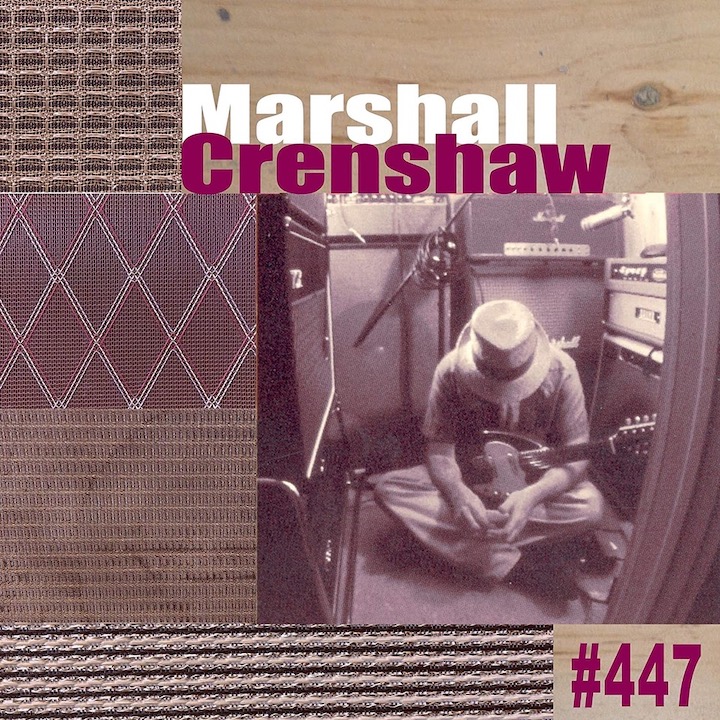
Marshall Crenshaw, #447. First released in 1999, #447 is the second in an ongoing series of remastered and expanded reissues from rocker Marshall Crenshaw. It ranks among his best albums, thanks to excellent vocal and guitar work and compositions like “Dime a Dozen Guy,” “T.M.D.,” and the violin-spiced “Television Light,” which are as addictively hooked as such earlier and better-known standouts as “Someday, Someway” and “Cynical Girl.” Crenshaw wrote or co-wrote all the songs on the original album and played many of the instruments, including guitar, bass, drums, and assorted keyboards. Two newly made bonus tracks offer added incentive to pick this up: the midtempo “Will of the Wind,” which Crenshaw wrote with punk rocker Gregg Turner; and Turner’s moody, engrossing “Santa Fe.” Both songs suggest that Crenshaw, whose recordings over the past decade have been minimal, still has what it takes.
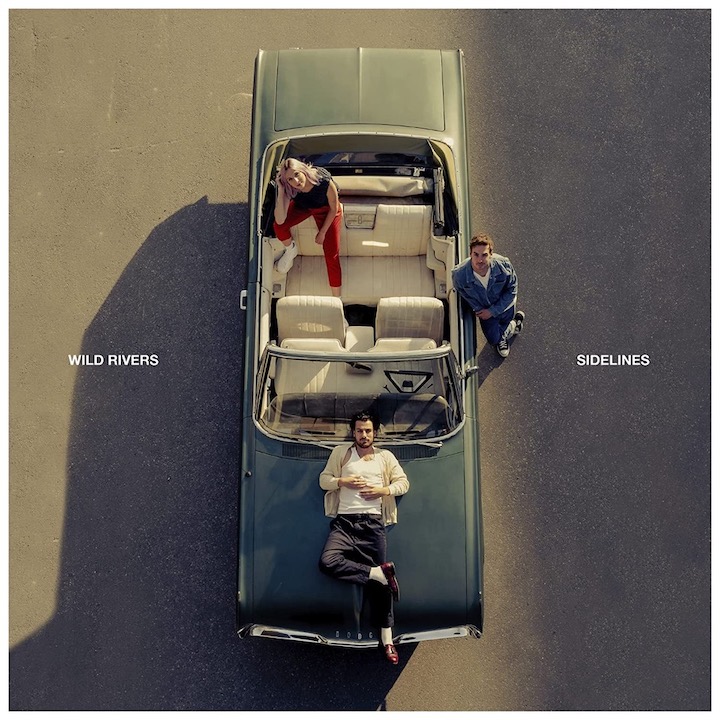
Wild Rivers, Sidelines. This is the sophomore full-length release from Toronto-based Wild Rivers, an indie-folk/rock/Americana band that followed a 2016 debut LP with a pair of EPs. The group boasts two strong vocalists in Khalid Yassein, who also plays guitar and keyboards, and Devan Glover; rounding out the trio is Andrew Oliver, who contributes lead guitar and synthesizer work. The mostly melancholy, introspective program is musically varied, well-paced, and consistently engaging. At their best, on numbers like the nostalgic “Neon Stars” and the delicate, beautifully sung “Long Time,” their harmonies and lyrics are nothing short of captivating.
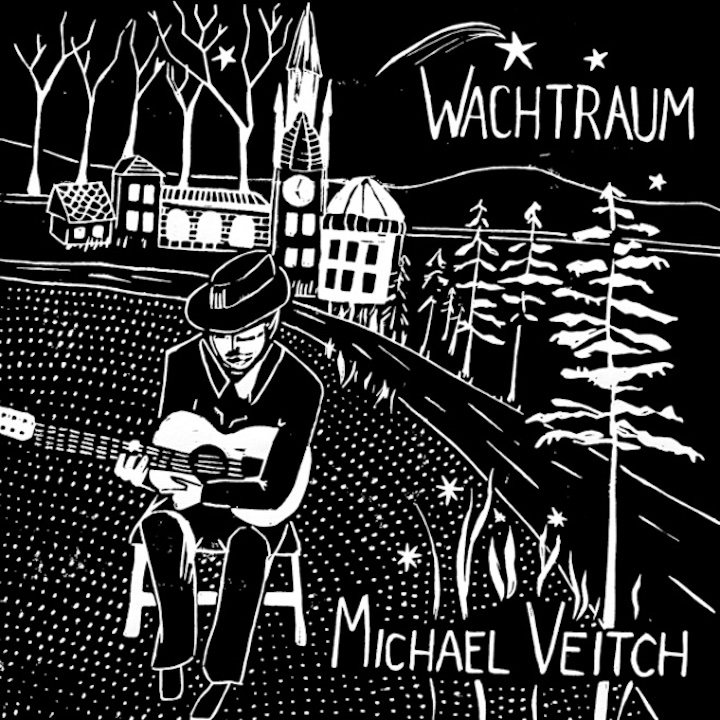
Michael Veitch, Wachtraum. This is the 11th EP from folk/pop singer and songwriter Michael Veitch, who has been performing since at least the 1980s. It’s sort of a concept album, as he begins with a tune about New Year’s (“First Day”) and continues with such numbers as “April Fools,” “Happy Fourth of July,” and, finally, “One Wish,” a song for the Christmas holidays. (The concept is a little loose, however: “August Nights,” which Veitch says the Beach Boys inspired, is the seventh track, not the eighth, and “Last Days of Summer” is number 10.) At times, the music becomes a bit too syrupy, but Veitch has an attractive tenor and delivers amiable melodies on high points like “Sunday Afternoons,” which references sixties music, and “Valentine’s Day.”
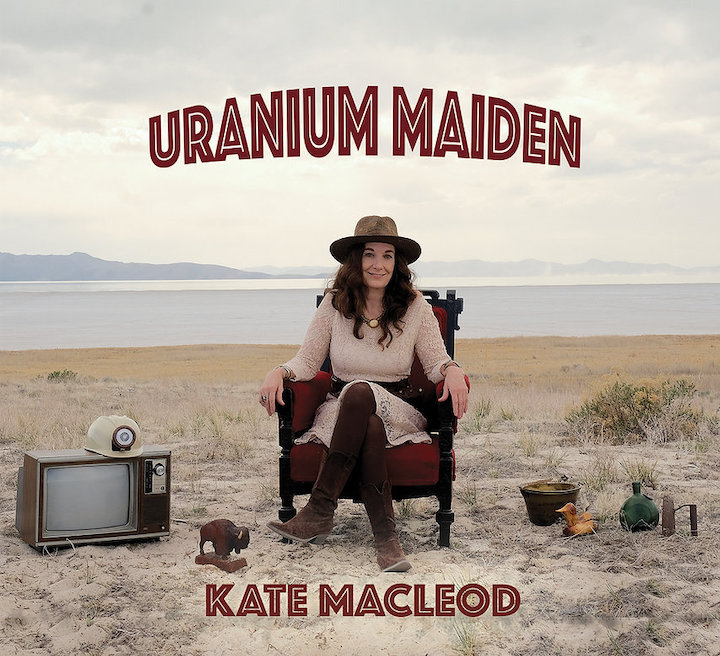
Kate MacLeod, Uranium Maiden. The atmospheric Uranium Maiden – which includes two CDs, one electric and one acoustic – is billed as “music from the heart of the American West, inspired by Utah,” the state that’s home to folk singer/songwriter Kate MacLeod. The set, whose influences range from Celtic music to folk and bluegrass, features about two dozen performers who play such instruments as mandolin, oboe, accordion, flute, and dobro. MacLeod herself primarily plays violin but also takes turns on guitar, harmonica, and dulcimer. Among the 17 selections are “Now Is the Time to Be Alive,” which reflects the writings of a man who vanished in the Utah desert; “Every Year Among the Pines,” about an annual get-together of descendants of a small Utah town; and “Butch Cassidy Was Here,” about you-know-who. The predominant subject, though, is nature: permeating the lyrics are references to rivers, lightning, birds, rocks, cold mornings, sand, breezes, pine trees, sundried hillsides, and the like.
Jeff Burger’s website, byjeffburger.com, contains five decades’ worth of music reviews, interviews, and commentary. His books include Dylan on Dylan: Interviews and Encounters, Lennon on Lennon: Conversations with John Lennon, Leonard Cohen on Leonard Cohen: Interviews and Encounters, and Springsteen on Springsteen: Interviews, Speeches, and Encounters.


